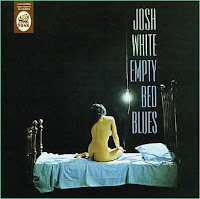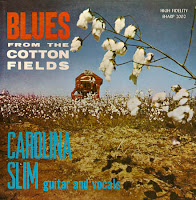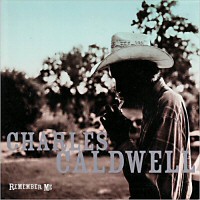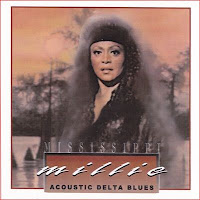Blues History
History of the Blues (as I see it)
| The Roots of the Blues
African Roots (Griots)
Nort African music | |
 |  |  |
Work Songs/Field Hollers
The songs that were sung by slaves and were inspired by the emotional states and stories from the plantations | Minstrel | Gospel
Solo vocal religious style that had a huge influence on blues performers

Blues Gospel
Reverend Gary Davis |
 While the term Minstrel dates back to medieval times, it is most commonly -- and infamously -- associated with white musicians of the late 19th and early 20th century who performed African-American songs, jokes, and impersonations in blackface makeup for racially-segregated audiences; among the more well-known minstrel performers were Emmett Miller and Honey Wilds. Minstrel is closely associated with styles such as Field Recordings, Folksongs, Jug Band, Old-Timey, String Bands, Traditional Country, Vaudeville Blues, Work Songs
| Minstrel | |
 |  |  |
| Jazz and Ragtime (1920's) | Blues Songsters
All-around performers: Henry Thomas, Pink Anderson, Mississippi John Hurt, Furry Lewis, Leadbelly, Mance Lipscomb | White Influences
Appalachian, folk and country music

Jug Bands
Gus Cannon's Jug Stompers, Mississippi Sheiks |
 Although lacking the improvisation or the blues feeling inherent in jazz, Ragtime was a strong influence on the earlier forms of jazz. At its prime from 1899-1915, ragtime is best known as totally written out piano music, though it was also performed by orchestras. Its syncopations and structure (blending together aspects of classical music and marches) hinted strongly at jazz, and many of its melodies (most notably "Maple Leaf Rag") would be played in later years by jazz musicians in a Dixieland context. Ragtime is closely associated with styles such as Boogie-Woogie, Dixieland, Jump Blues, New Orleans Jazz, Piano Blues, Trad Jazz, Standards, Classic Female Blues.
| Jazz and Ragtime |
|
 |  |  |
Father of the Blues
W.C. Handy

Classic Female Blues Singers
Mamie Smith (The first blues record "Crazy Blues," 1920), Ma Rainey, Bessie Smith, Lucille Bogan, Sara Martin, Clara Smith, Ida Cox, Sippie Wallace, Victoria Spivey, Chippie Hill

Religious Music That Influenced Blues
Blind Willie Johnson

Major Influences
Lonnie Johnson, Blind Lemon Jefferson | Jump/Piano Blues | Jazz |
 The songster tradition both pre-dated and co-existed with blues music, especially in the areas of the Southeast that produced music in the Piedmont style. It began soon after the end of slavery in the south, when African-American musicians became able to travel and play music for a living. Usually a solo musician with a guitar, or occasionally a banjo, the songster would perform songs from a variety of musical styles including gospel, field songs and folk, and later ragtime and blues. Songsters were performers, first and foremost, and maintained the broad repertoire to appeal to a wide range of audiences. Through vehicles like minstrel and medicine shows, the black songsters interacted with white musicians, who would later adopt the black musicians' songs and use them, along with songs from white sources, as the foundations of early country music. Songster style is closely associated with styles such as Field Recordings, Folk-Blues, Folksongs, Jug Band, Vaudeville Blues, Work Songs, Pre-War Blues, Pre-War Country Blues.
Father of the Blues
W.C. Handy | Blues Songsters | |
 |  | |
| Early Delta and Country Blues | |
 |  |  |
Country Blues
Barbecue Bob, Rev. Gary Davis, Blind Blake, Tommy Johnson, Robert Pete Williams, Sleepy John Estes, Big Bill Broonzy, Skip James, Bo Carter | Delta Blues

Charley Patton
The first giant of Delta Blues

Delta Blues Innovators
Son House, Willie Brown, Tommy Johnson, Tommy McClennan, Ishmon Bracey, Robert Johnson, Skip James, Bukka White, Mississippi John Hurt

Other Greats
Johnny Shines, Eddie Taylor, Muddy Waters, Robert Nighthawk, John Lee Hooker, Howlin' Wolf, Elmore James, Mississippi Fred McDowell | Acoustic Blues

Originators
Leadbelly, Blind Lemon Jefferson, Charley Patton, Son House, Robert Johnson, Robert Pete Williams, John Lee Hooker, Jesse Fuller, Doctor Ross, Lightnin' Hopkins, J.B. Lenoir, Brownie McGhee, Sonny Terry, Mississippi Fred McDowell

The '60s and '70s
Koerner, Ray & Glover, Dave Van Ronk, John Hammond, Jr., Taj Mahal, Ry Cooder, John Mayall, Duster Bennett, Jo Ann Kelly

Modern Era
Bonnie Raitt, John Cephas & Phil Wiggins, Ted Hawkins, Lonnie Pitchford, Rory Block, Corey Harris |
and Blues continued to live in many different styles.
 Blues is about tradition and personal expression. At its core, the blues has remained the same since its inception. Most blues feature simple, usually three-chord, progressions and have simple structures that are open to endless improvisations, both lyrical and musical. The blues grew out of African spirituals and worksongs. In the late 1800s, southern African-Americans passed the songs down orally, and they collided with American folk and country from the Appalachians. New hybrids appeared by each region, but all of the recorded blues from the early 1900s are distinguished by simple, rural acoustic guitars and pianos. After World War II, the blues began to fragment, with some musicians holding on to acoustic traditions and others taking it to jazzier territory. However, most bluesmen followed Muddy Waters' lead and played the blues on electric instruments. From that point on, the blues continued to develop in new directions -- particularly on electric instruments -- or it has been preserved as an acoustic tradition.
Blues Styles
Acoustic Blues ~ Acoustic Blues is a general catch-all term describing virtually every type of blues that can be played on a non-electric musical instrument. It embraces a wide range of guitar and musical styles including folk, the songster tradition, slide, fingerpicking, ragtime, and all of the myriad regional strains (Chicago, Delta, Louisiana, Mississippi, Texas, Piedmont, etc.) that thrived in the early days of the genre's gestation. But acoustic blues is not limited to merely guitar music; its "acoustic" appellation is an elastic enough term to also include mandolin, banjo, piano, harmonica, jug, and other non-electric instruments including homemade ones, like the one string monochord bottleneck diddleybow.
Acoustic Blues Styles
Acoustic Chicago Blues, Acoustic Louisiana Blues, Acoustic New Orleans Blues, Blues Revival, Contemporary Blues, Slide Guitar Blues, Acoustic Country Blues, Folk-Blues, Piano Blues, Piedmont Blues
Chicago Blues ~ What is now referred to as the classic Chicago Blues style was developed in the late '40s and early '50s, taking Delta blues, fully amplifying it and putting it into a small-band context. Adding drums, bass, and piano (sometimes saxophones) to the basic string band and harmonica aggregation, the style created the now standard blues band lineup. The form was (and is) flexible to accommodate singers, guitarists, pianists, and harmonica players as the featured performer in front of the standard instrumentation. Later permutations of the style took place in the late '50s and early '60s, with new blood taking their cue from the lead guitar work of B.B. King and T-Bone Walker, creating the popular west side subgenre (which usually featured a horn section appended to the basic rhythm section). Although the form has also embraced rock beats, it has generally stayed within the guidelines developed in the 1950s and early '60s.
Chicago Blues Styles
Chicago Blues, Electric Chicago Blues, Acoustic Chicago Blues, Modern Chicago Blues, Modern Electric Chicago Blues
Country Blues ~ Country Blues is a catch-all term that delineates the depth and breadth of the first flowering of guitar-driven blues, embracing both solo, duo, and string band performers. The term also provides a convenient general heading for all the multiple regional styles and variations (Piedmont, Atlanta, Memphis, Texas, acoustic Chicago, Delta, ragtime, folk, songster, etc.) of the form. It is primarily -- but not exclusively -- a genre filled with acoustic guitarists, embracing a multiplicity of techniques from elaborate fingerpicking to the early roots of slide playing. But some country-blues performers like Lightnin' Hopkins and John Lee Hooker later switched over to electric guitars without having to drastically change or alter their styles.
Country Blues Styles
Classic Female Blues, Acoustic Memphis Blues, Acoustic New Orleans Blues, Blues Gospel, Country Blues, Vaudeville Blues, Prewar Country Blues, Folk-Blues, Early American Blues, Memphis Blues, Blues Revival, Dirty Blues, Work Songs, Prewar Blues, Spirituals, Prewar Gospel Blues, Songster
Delta Blues ~ The Delta Blues style comes from a region in the southern part of Mississippi, a place romantically referred to as "the land where the blues were born." In its earliest form, the style became the first black guitar-dominated music to make it onto phonograph records back in the late '20s. Although many original Delta blues performers worked in a string-band context for live appearances, very few of them recorded in this manner. Consequently, the recordings from the late '20s through mid-'30s consist primarily of performers working in a solo, self-accompanied context. The form is dominated by fiery slide guitar and passionate vocalizing, with the deepest of feelings being applied directly to the music. Its lyrics are passionate as well, and in some instances remain the highest flowering of blues songwriting as stark poetry. The form continues to the present time with new performers working in the older solo artist traditions and style.
Delta Blues Styles
Acoustic Delta Blues, Electric Delta Blues, Modern Delta Blues, Finger-Picked Guitar
Harmonica Blues ~ Harmonica Blues refers to any style of blues where the harmonica plays a central figure. Although the harmonica was present in many country-blues recordings, it became a dominant force in the '50s, when it was amplified by the likes of Big Walter Horton, Little Walter, and Junior Wells. The powerful sound of a miked harmonica became an instantly recognizable element of electric blues, particularly Chicago blues.
Harmonica Blues Styles
Electric Harmonica Blues, Acoustic Harmonica Blues
Louisiana Blues ~ A looser, more laid-back, and percussive version of the Jimmy Reed side of the Chicago sound, Louisiana Blues has several distinctive stylistic elements to distinguish it from other genres. The guitar work is simple but effective, heavily influenced by the boogie patterns used on Jimmy Reed singles, with liberal doses of Lightnin' Hopkins and Muddy Waters thrown in for good measure. Unlike the heavy backbeat of the Chicago style, its rhythm can be best described as "plodding," making even uptempo tunes sound like slow blues simply played a bit faster. The production techniques on most of the recordings utilize massive amounts of echo, giving the performances a darkened sound and feel, thus coining the genre's alternate description as "swamp blues."
Louisiana Blues Styles
Louisiana Blues, Electric Louisiana Blues, Acoustic Louisiana Blues, Swamp Blues
Electric Blues ~ Electric Blues is an eclectic genre that embraces just about every kind of blues that can be played on an amplified instrument. Its principal component is that of the electric guitar, but its amplified aspect can extend to the bass (usually a solid body Fender type model, but sometimes merely an old "slappin''' acoustic with a pickup attached), harmonica, and keyboard instruments. Stylistically, the form is a wide open field, accessible to just about every permutation possible -- embracing both the old, the new, and sometimes futuristic, and something that falls between the two. Some forms of it copy the older styles of urban blues (primarily the Chicago, Texas, and Louisiana variants) usually in a small combo format, while others head into funk and soul territory. Yet electric blues is elastic enough to include artists who pay homage to those vintage styles of playing while simultaneously recasting them in contemporary fashion. It is lastly a genre that provides a convenient umbrella for original artists of late '40s and early '50s derivation who seemingly resist neat classifications.
Electric Blues Styles
Detroit Blues, Electric Blues, Electric Chicago Blues, Electric Country Blues, Electric Delta Blues, Electric Harmonica Blues, Electric Memphis Blues, Electric Texas Blues, Juke Joint Blues, Slide Guitar Blues, Soul-Blues, Urban Blues
Modern Electric Blues ~ Modern Electric Blues is an eclectic mixture, a sub genre embracing both the old, the new and something that falls between the two. Some forms of it xeroxes the older styles of urban blues-primarily offshoots of the electric Chicago band style-right down to playing the music itself on vintage instruments and amplifiers from the period being replicated. It also a genre that pays homage to those vintage styles of playing while simultaneously recasting them in contemporary fashion. It can also be-by turns-the most forward looking of all blues styles, embracing rock beats and pyrotechnics and enlivening the form with funk rhythms and chord progressions that expand beyond the standard three that usually comprises most blues forms.
Modern Electric Blues began in the late '70s and early '80s, after blues-rock ran its course and most major labels had given up on the blues. As a musical form, electric blues had not changed significantly since the mid-'60s, once the British blues bands invaded America. As a result, the music sounded essentially the same, blending classic electrified Chicago and Texas blues with a distinct rock influence. This new generation of blues musicians received support through new independent labels like Alligator, who provided a crucial outlet of modern electric blues. As the '80s progressed, modern electric blues found its audience, and it continued to thrive through the late '90s.
Modern Electric Blues Styles
Modern Electric Blues, Modern Blues, Blues-Rock, British Blues, Electric Memphis R&B, Electric R&B, Soul-Blues, Uptown Blues, New Orleans R&B, Uptown Soul
Contemporary Blues ~ Contemporary Blues draws upon traditional acoustic and electric blues, but offers a more smoothed-out take on the genre that incorporates the influences of rock, pop, R&B, and/or folk. As such, contemporary blues is most often (though not always) electric, and rarely (though once in a while) purist. Because of its up-to-date production and mellower audience sensibility, the style tends to be more polished and sometimes even a bit genteel; it's still definitely soulful, but not quite as earthy or gritty as the music that predates it, and not as aggressive or fiery as modern-day electric blues from Chicago or Texas. Since it's informed by other types of music, contemporary blues has a greater chance of crossing over to pop, album rock, or adult-contemporary radio formats. Artists like Robert Cray, Keb' Mo', and prodigies Kenny Wayne Shepherd and Jonny Lang epitomize the contemporary blues sound.
Contemporary Blues Styles
Modern Acoustic Blues, Modern Electric Blues
East Coast Blues ~ East Coast Blues essentially falls into two categories: Piedmont Blues and Jump Blues and its variations. Musically, Piedmont Blues describes the shared style of musicians from Georgia, the Carolinas, and Virginia as well as others from as far afield as Florida, West Virginia, Maryland, and Delaware. It refers to a wide assortment of aesthetic values, performance techniques, and shared repertoire rooted in common geographical, historical, and sociological circumstances. The Piedmont guitar style employs a complex fingerpicking method in which a regular, alternating-thumb bass pattern supports a melody on treble strings. The guitar style is highly syncopated and connects closely with an earlier string-band tradition integrating ragtime, blues, and country dance songs. It's excellent party music with a full, rock-solid sound. Jump Blues is an uptempo, jazz-tinged style of blues that first came to prominence in the mid to late 1940s. Usually featuring a vocalist in front of a large, horn-driven orchestra or medium sized combo with multiple horns, the style is earmarked by a driving rhythm, intensely shouted vocals, and honking tenor saxophone solos, all of those very elements a precursor to rock & roll. The lyrics are almost always celebratory in nature, full of braggadocio and swagger. With less reliance on guitar work (the instrument usually being confined to rhythm section status) than other styles, jump blues was the bridge between the older styles of blues-primarily those in a small band context-and the big band jazz sound of the 1940s.
East Coast Blues Styles
Piedmont Blues, East Coast Blues, New York Blues, Vaudeville Blues, Minstrel
Texas Blues ~ A geographical subgenre earmarked by a more relaxed, swinging feel than other styles of blues, Texas Blues encompasses a number of style variations and has a long, distinguished history. Its earliest incarnation occurred in the mid-'20s, featuring acoustic guitar work rich in filigree patterns -- almost an extension of the vocals rather than merely a strict accompaniment to it. This version of Texas blues embraced both the songster and country-blues traditions, with its lyrics relying less on affairs of the heart than other forms. The next stage of development in the region's sound came after World War II, bringing forth a fully electric style that featured jazzy, single-string soloing over predominantly horn-driven backing. The style stays current with a raft of regional performers primarily working in a small combo context.
Texas Blues Styles
Electric Texas Blues, Acoustic Texas Blues, Modern Electric Texas Blues
Piano Blues ~ Piano Blues runs through the entire history of the music itself, embracing everything from ragtime, barrelhouse, boogie woogie, and smooth West Coast jazz stylings to the hard-rocking rhythms of Chicago blues.
Piano Blues Styles
Boogie-Woogie, Piano Blues, West Coast Jazz, Classic Female Blues, Jazz Blues
Jump Blues ~ Jump Blues refers to an uptempo, jazz-tinged style of blues that first came to prominence in the mid- to late '40s. Usually featuring a vocalist in front of a large, horn-driven orchestra or medium sized combo with multiple horns, the style is earmarked by a driving rhythm, intensely shouted vocals, and honking tenor saxophone solos -- all of those very elements a precursor to rock & roll. The lyrics are almost always celebratory in nature, full of braggadocio and swagger. With less reliance on guitar work (the instrument usually being confined to rhythm section status) than other styles, jump blues was the bridge between the older styles of blues -- primarily those in a small band context -- and the big band jazz sound of the 1940s.
Jump Blues Styles
Jump Blues, Jazz Blues, St. Louis Blues, Early R&B
West Coast Blues ~ More piano-based and jazz-influenced than anything else, West Coast Blues is -- in actuality -- the California style, with all of the genre's main practitioners coming to prominence there, if not actual natives of the state in particular. In fact, the state and the style played host to a great many post-war Texas guitar expatriates, and their jazzy, T-Bone Walker style of soloing would become an earmark of the genre. West Coast blues also features smooth, honey-toned vocals, frequently crossing into urban blues territory. The West Coast style was also home to numerous jump-blues practitioners, as many traveling bands of the 1940s ended up taking permanent residence there. Its current practitioners work almost exclusively in the standard small-combo format.
West Coast Blues Styles
Acoustic West Coast Blues, Jazz Blues, Electric California Blues, West Coast Blues
Posted by muddyOznake: Blues History
|
 We are a group of friends from different parts of the world which has one important thing in common, our love for the blues. We are here to promote blues and blues musicians who we think deserve more attention and that is the only purpose of this blog.
We are a group of friends from different parts of the world which has one important thing in common, our love for the blues. We are here to promote blues and blues musicians who we think deserve more attention and that is the only purpose of this blog.



















